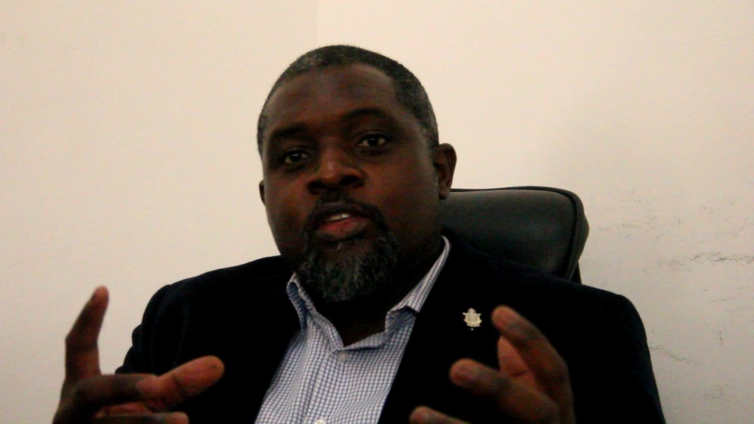
Audio By Carbonatix
A researcher with the Kumasi Centre for Collaborative Research has said the President's decision to lift the lockdown is based on economics rather than the data so far collected from testing and contact tracing.
On Sunday 19 April, 2020, Nana Akufo Addo lifted the ban on the partial lockdown imposed on identified hotspots for coronavirus in the country during a televised address to the nation.
Speaking on the Super Morning Show, Monday, Dr John Amuasi said, “there is an argument that the decision was based on science and data related to the infection and the risk of its spread.”
He said government may have other reasons because “we do not have data or the kind of data that we need to be able to measure anything we can call an infection rate. What we have really is what we refer to as a proportion of cases, which is essentially the number of positive cases out of the numbers that you have tested.”
“It is a big mistake to keep referring to this as an infectivity rate or infection rate or attack rate [because] it is not a rate.”
Dr Amuasi who is also with the Department of Global Public Health at the Kwame Nkrumah University of Science and Technology (KNUST) added that what the health authorities and government is naming as ‘infection rate’ which is also known as ‘positivity rate’ is not right.
“If you look at the GHS website, what they call the positivity rate based on the different surveillance types that they have, you have the ‘routine surveillance’ being 2.27 and the ‘mandatory quarantined’ giving you maybe 5.69, this is not even a positive rate, it is the proportions of positives,” he said.
Therefore, bearing this in mind, Dr Amuasi said, “if you looked at what we had, we could not have possibly taken a decision based on risk of getting infected.”
He explained that infectivity or positivity rate is measured during a certain time component and that time component must be consistent. Meaning that testing must be consistent and the entire population must be represented.
“If you tell me the decision was based on a couple of other variables looking at the total impact of a continued lockdown or continuous restriction of movement on the economy then I'm not even in a position to cannot contest that.”
“What I want to make clear to the people of our nation is that we have to prepare for more cases of coronavirus [because] the decision will lead to an increase of cases.”
Latest Stories
-
NAIMOS has failed in galamsey fight; it’s time for a state of emergency – DYMOG to President Mahama
3 hours -
Mahama to open African Court judicial year in Arusha, mark 20th anniversary
3 hours -
Ghana begins partial evacuation of Tehran Embassy as Middle East tensions escalate
3 hours -
EPA tightens surveillance on industries, moves to cut emissions with real-time monitoring system
3 hours -
Police conduct show of force exercise ahead of Ayawaso East by-election
5 hours -
Ghana launches revised Early Childhood Care and Development Policy to strengthen child development framework
5 hours -
AI to transform 49% of jobs in Africa within three years – PwC Survey
5 hours -
Physicist raises scientific and cost concerns over $35m EPA’s galamsey water cleaning technology
6 hours -
The road to approval: Inside Ghana’s AI strategy and KNUST’s leadership
6 hours -
Infrastructure deficit and power challenges affecting academics at AAMUSTED – SRC President
6 hours -
Former US diplomat sentenced to life for abusing two girls in Burkina Faso
6 hours -
At least 20 killed after military plane carrying banknotes crashes in Bolivia
7 hours -
UK reaffirms investment commitment at study UK Alumni Awards Ghana 2026
7 hours -
NCCE pays courtesy call on 66 Artillery Regiment, deepens stakeholder engagement
7 hours -
GHATOF leadership pays courtesy call on Chief of Staff, Julius Debrah
7 hours

